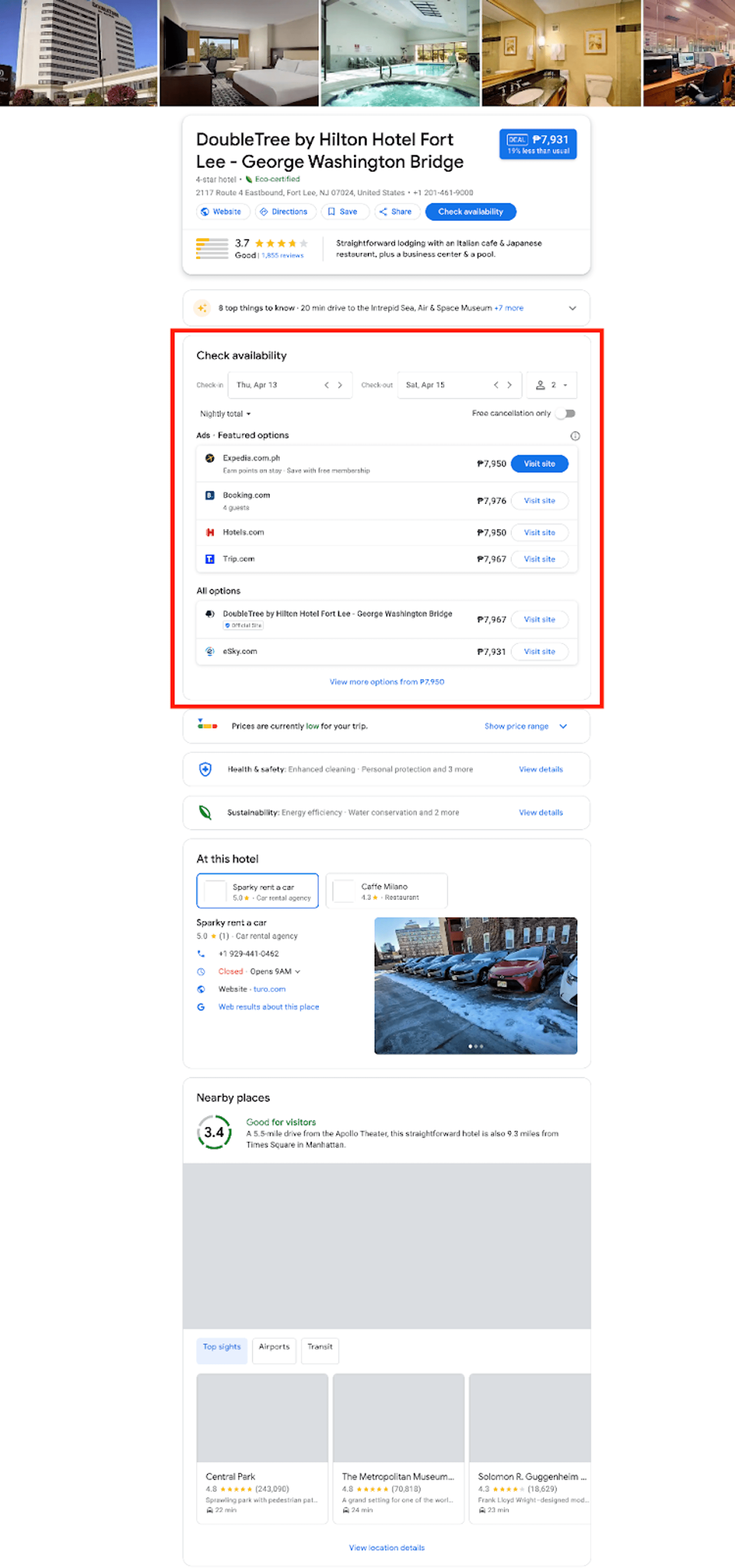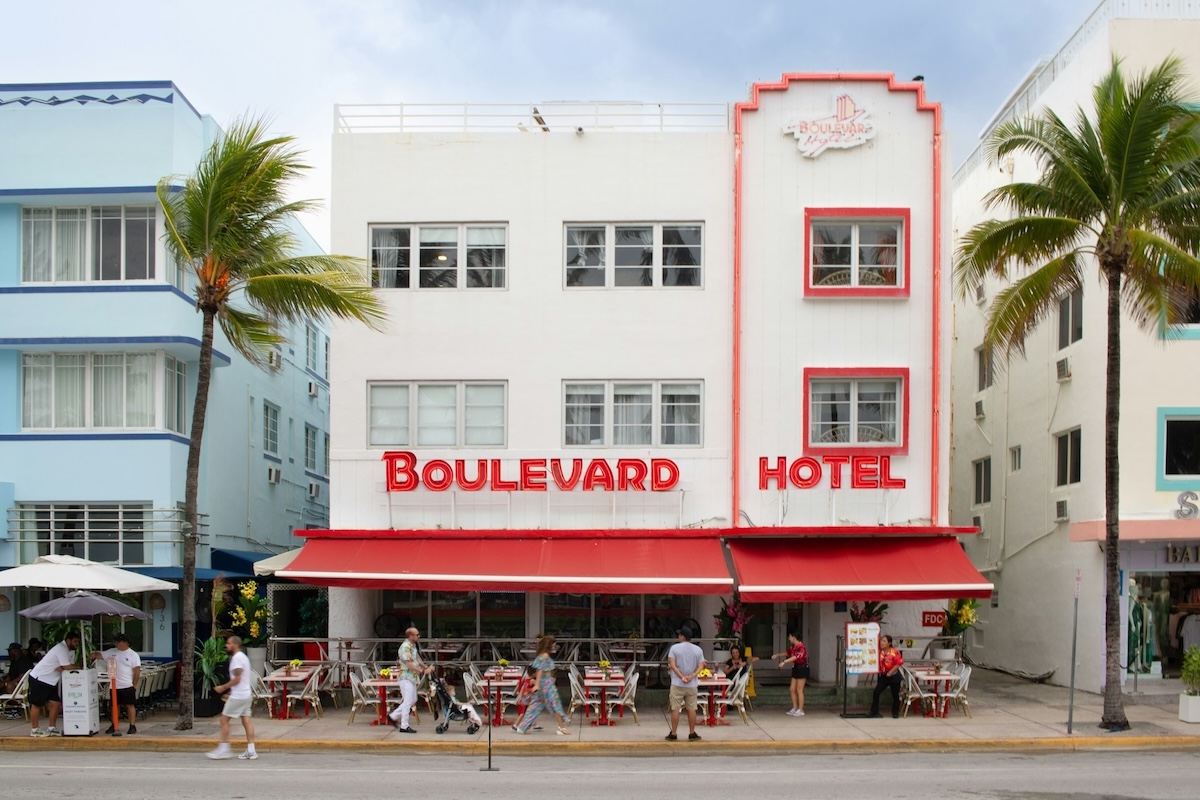In the hypercompetitive hotel industry, a constant and silent battle is being waged for every reservation. For years, Online Travel Agencies (OTAs) such as Booking.com, Expedia or Despegar have been the big winners of this war. They have built digital empires, positioned themselves as the default option for millions of travelers and, in the process, have taken control of your most precious asset: your customers.
The model is simple and devastating for your margins: they send you a guest, and you pay them a “bleeding” commission that can reach up to 25% of the reservation value. You are, in effect, renting your own business, paying a high price to fill your own rooms.
But what if you could build your own acquisition channel? A growth engine that works for you 24/7, that attracts your ideal guests directly to your website and that allows you to keep 100% of the income from each reservation. This engine exists, is sustainable and is called SEO (Search Engine Optimization).
In SEOTopSecret, we don't see SEO as just another technical tool in the marketing box. We see it as your declaration of independence. It's your secret weapon to regain control, profitability and direct relationship with your customers. This isn't just another guide; it's the Playbook strategic that will show you how to transform your website into your best seller, surpassing the competition and OTAs on the most important battlefield: the first page of Google.

Why is SEO Non-Negotiable for a Hotel in 2026?
In the current scenario, ignoring SEO is like having the best hotel in the city, but without any road leading to it. You're simply invisible to the vast majority of your potential customers. A strategy of organic positioning Well executed is not a luxury, it is a business need that offers four massive competitive advantages:
- Attracting High-Intention Traffic: SEO connects you with travelers at the exact time of their need. When someone searches for “boutique hotel in La Condesa with terrace”, they are not curious; they are ready to book. SEO doesn't interrupt, but it offers the perfect solution at the right moment, attracting the most qualified customers.
- Drastic Reduction of Dependency on OTAs: This is the most important financial advantage. Every direct booking you get through your website is 15-25% more income that stays in your pocket, instead of going to an OTA account. In the long term, SEO is the strategy with the highest Return on Investment (ROI), transforming your marketing from a cost center to a benefit center.
- Building a Durable Brand Asset: A social media ad campaign disappears as soon as you stop paying. A good position in Google, achieved through SEO, is a digital asset that endures. It generates traffic, credibility and bookings on a consistent basis, month after month. You're building a reputation and authority that belong to you and that are cherished over time.
- Access to Global Markets without Intermediaries: Do you want to attract tourists from Europe, the United States or Asia? With a strategy of International SEO, your hotel can be discovered by travelers from all over the world who are looking for an authentic experience in your destination. It allows you to speak their language and appear in their local searches, without relying on the algorithms of large travel platforms.

The SEO Playbook for Hotels
To win in the competitive hotel sector, isolated actions are not enough. A system is needed, a comprehensive strategy that covers all fronts. This is our 5-pillar playbook.
1. Local SEO Domain — Conquer Your Territory
The vast majority of hotel searches have a geographical intent. “Hotel in [city]”, “accommodation near [tourist attraction]”, “hotel near me”. El Local SEO it's not a part of your strategy; it's your main battleground.
- Google Business Profile (GBP) is your New Digital Facade: Your GBP profile is often the first interaction a customer has with your hotel. It must be immaculate. This means:
- Complete and Consistent Information: Name, address, telephone number (NAP), website and schedules must be 100% accurate.
- Professional and Abundant Photos: Show off your best rooms, the façade, the lobby, the amenities. The photos sell the experience.
- Active Review Management: Reviews are the most important trust factor. Actively encourage your guests to leave reviews and Reply to all, both those with 5 stars and those with 1. Show that you care.
- Publications and FAQs: Use the “Publications” to announce offers and keep the Q&A section up to date.
- NAP Consistency (Name, Address, Phone): Google is a trusted machine. If your contact details are different on TripAdvisor, on your website and in local directories, you generate distrust and harm your ranking. Consistency is key.
- Local On-Page Signals: Your website should shout “I'm here”. Include the name of your city and neighborhood in titles, headings and in the body of text in a natural way. Create specific pages for nearby attractions.
2. Keyword Research — Speak the Traveler's Language
To be the answer, you must first understand the question. Deep keyword research allows you to get inside the heads of your potential guests. Your strategy should cover all three search intentions:
- Information Intent (TOFU - Top of Funnel): The user is dreaming or planning.
- Examples: “what to do in San Miguel de Allende”, “best beaches in the Riviera Maya”, “guide to museums in CDMX”.
- Examples: “what to do in San Miguel de Allende”, “best beaches in the Riviera Maya”, “guide to museums in CDMX”.
- Business Intent (MOFU - Middle of Funnel): The user is comparing options.
- Examples: “best boutique hotels in La Condesa”, “hotels with pools in Monterrey”, “Hotel X reviews”.
- Examples: “best boutique hotels in La Condesa”, “hotels with pools in Monterrey”, “Hotel X reviews”.
- Transactional Intent (BOFU - Bottom of Funnel): The user is ready to book.
- Examples: “book hotel in downtown Oaxaca”, “hotel deals in Guadalajara”, “Hotel Y availability”.
- Examples: “book hotel in downtown Oaxaca”, “hotel deals in Guadalajara”, “Hotel Y availability”.
Utilize SEO tools to identify these terms, but don't forget about the most powerful tool: the Google search bar and common sense.
3. On-Page Optimization and Site Experience (UX)
Attracting the visitor is only the first step. Your website should be a perfectly oiled conversion machine.
- Speed is Money: In the travel industry, patience is zero. A site that takes longer than 3 seconds to load is losing reservations. The optimization of speed and Core Web Vitals it's not a technical option, it's a business need.
- Mobile-First Design, Always: Most searches and a large part of bookings start on a mobile device, often while the traveler is already on the move. Your site should offer a flawless experience on small screens, with easy-to-press buttons and a frictionless booking process. The synergy between SEO and UX is essential.
- Persuasive and Visual Content: Your room pages are your product pages. Don't just list features (“King size bed, 42 inch TV”). Sell the experience (“Wake up in a king size bed with 400-thread sheets and enjoy your favorite movie on a 42 inch TV”). Use professional photos and high-quality videos. The images sell the stay before the user reads a single word.
- A Flawless Booking Engine: Your booking engine should be simple, fast and secure. Any unnecessary step, any confusing field or any question about payment security is an invitation for the user to return to Booking.com.
4. Content Marketing — Become the Best Local Guide
Stop selling your hotel and start selling your destination. The most powerful content strategy for a hotel is to transform its blog into the definitive resource for travelers visiting its city.
- Create Comprehensive Local Guides: Not a simple post. Create pillar guides such as “The Ultimate Guide to a Weekend in North Rome”, and then more specific articles that link to it: “The 10 Best Taquerías”, “Art Galleries You Can't Miss”, “Secret Cocktail Bars”.
- Promote Events and Seasonality: Create content around important events (festivals, concerts, marathons) and seasons (summer vacation, Christmas). Position yourself for searches that occur months before the trip.
- Collaborate with Local Businesses: Interview the chef of the trendy restaurant, the owner of the nearby art gallery or the most popular tour guide. Not only does this generate unique content, but it creates relationships and potential opportunities for Off-Page SEO.
This type of content marketing positions you as a local authority, attracts high-quality traffic in the planning phase and builds a solid base for generating natural links from other travel blogs.
5. Synergy — SEO, Social Media and PPC in an Integrated Ecosystem
SEO is the pillar, but its power is multiplied when integrated into a 360° strategy.
- Use Social Networks such as your content distribution channel. Share your blog articles, post short videos of your installations and create a visual community on platforms such as Instagram. User-generated content (photos of your guests) is your best advertisement.
- Use PPC (Paid Advertising) Campaigns strategically. The campaigns of Google Ads are perfect for capturing the most immediate demand (users ready to book now) and for launching retargeting campaigns to users who visited your site but didn't complete the reservation.
- Integrate with for branding campaigns and to reach specific audiences based on travel interests, creating demand that will then be captured by your SEO and SEM efforts.

Take Control of Your Bookings
Relying exclusively on OTAs is a strategy for survival, not for growth. It's allowing an intermediary to own the relationship with your customer and keep a significant part of your income.
Investing in SEO is building an asset that belongs to you. It's the most sustainable, cost-effective and powerful strategy to secure the long-term future of your hotel. It's the way to fill your rooms with customers who chose you directly, not because you were just another option on an endless list.
In SEOTopSecret, we don't just optimize websites; we build direct booking engines.
Frequently Asked Questions
1. Why do I need SEO for my hotel if I'm already on Booking.com and other OTAs?
Being in OTAs gives you reach, but at a very high cost (commissions of 15-25%) and without giving you ownership of the customer. SEO is your strategy for Regain profitability and control. By positioning your own website, you generate direct bookings, you keep 100% of the revenues, you build your own customer database and you strengthen your brand in the long term. OTAs are a channel; your website is your business.
2. What is the most important and fastest SEO action a hotel can do?
Without a doubt: create and optimize your profile to the maximum Google Business Profile (GBP). It's your new digital facade. A complete and well-managed profile positions you on Google Maps, appears in local searches and generates calls and visits to your website directly. Focus on having high-quality photos, all your updated information and, above all, on getting and responding to reviews from your guests. It is the action with the greatest impact on the Local SEO.
3. How long will it take to see results (more bookings) with SEO for my hotel?
SEO is a medium/long-term strategy, not an instant solution. Although you may see initial improvements in traffic and visibility in 3-4 months, a significant impact on direct bookings usually materializes between 6 and 9 months. After 12 months, the ROI becomes exponential, since you have built a digital asset that generates customers in a sustainable way with a very low marginal cost.
4. My hotel is small, do I really need a blog? What would you write about?
Absolutely, yes! The blog is not for talking about your rooms, it's for Selling your destination. Travellers aren't looking for “hotel with a comfortable bed”, they're looking for “what to do in [your city]”. A strategic blog allows you to attract these travellers in their planning phase with content such as: “The definitive guide to the best restaurants in [your neighborhood]”, “3-day itinerary for a perfect weekend” or “Secret beaches that only locals know”. This way you position yourself as the local expert and become their natural lodging option.
5. For quick results, isn't it better to just invest in Google Ads?
For immediate results, Google Ads it's an excellent tool. However, relying on it alone is a “rent” strategy: traffic stops as soon as you stop paying. The smartest strategy is synergy. Use Google Ads to capture immediate transactional demand while the SEO builds your long-term asset, reducing your acquisition cost over time and generating organic bookings that don't have a cost per click.


%20(1200%20x%201200%20px).jpg)




